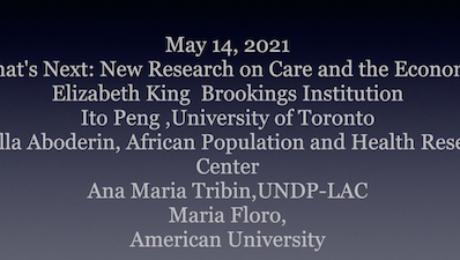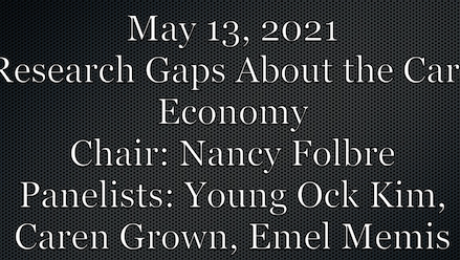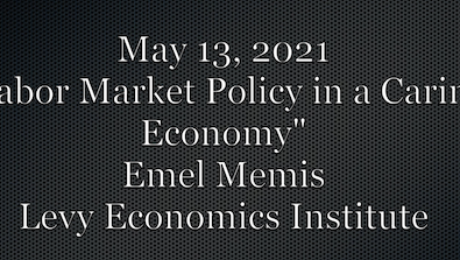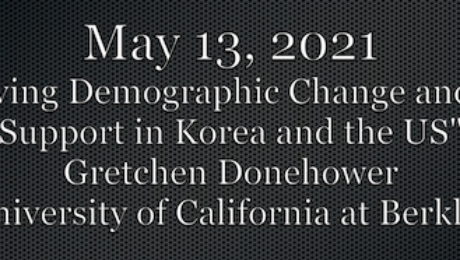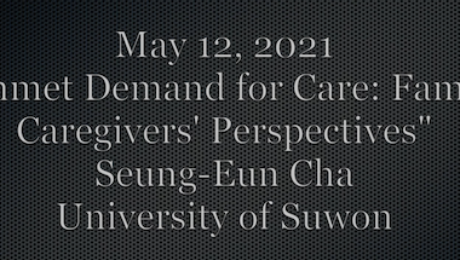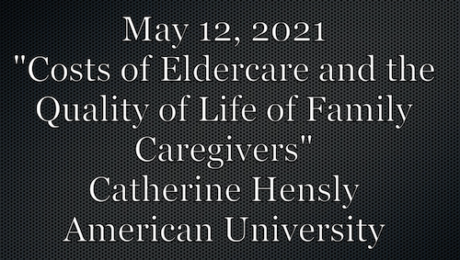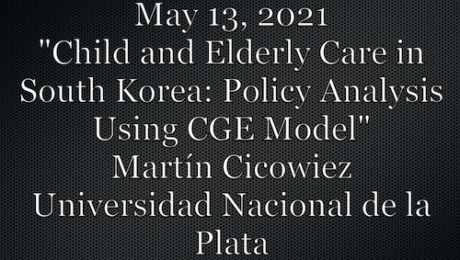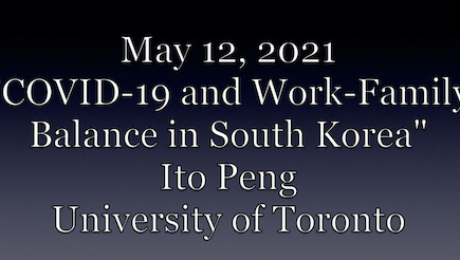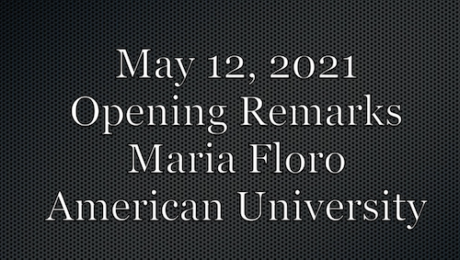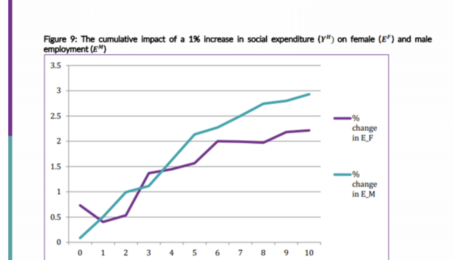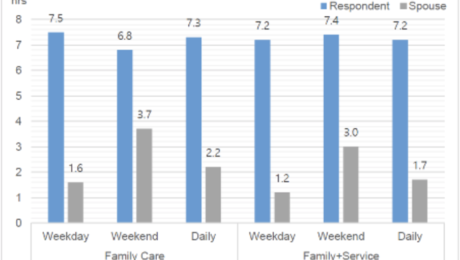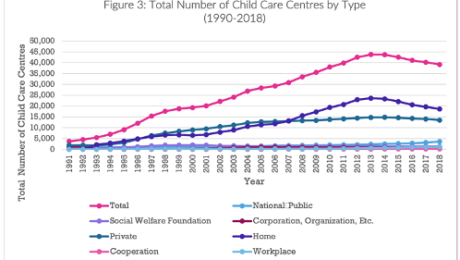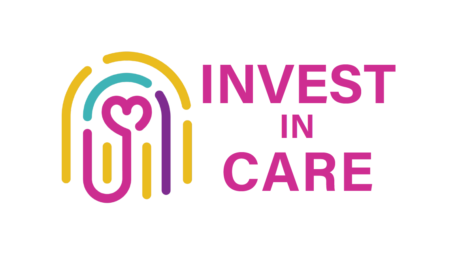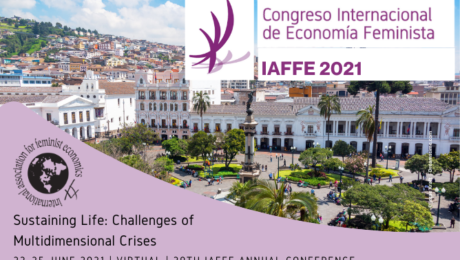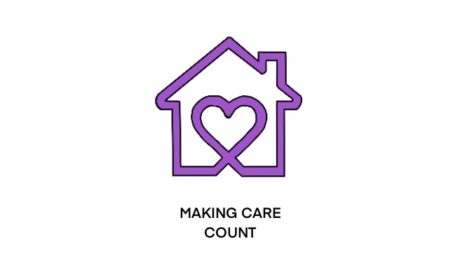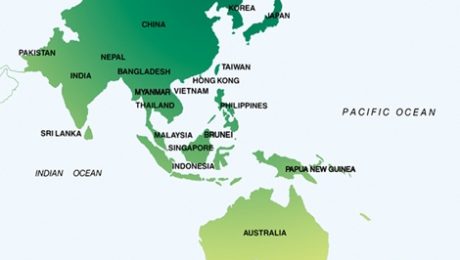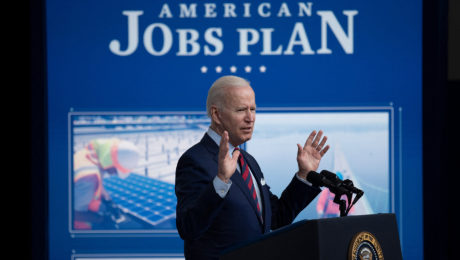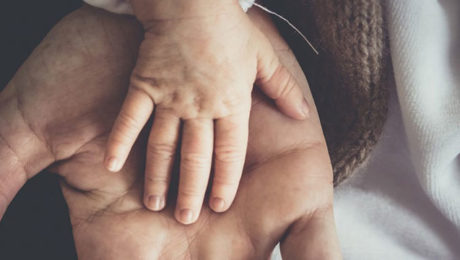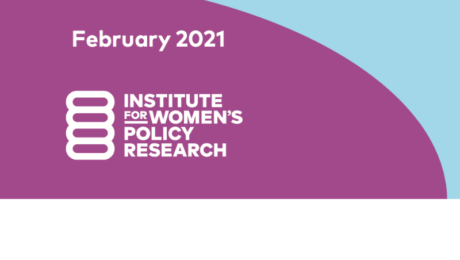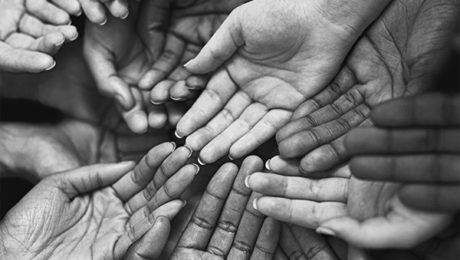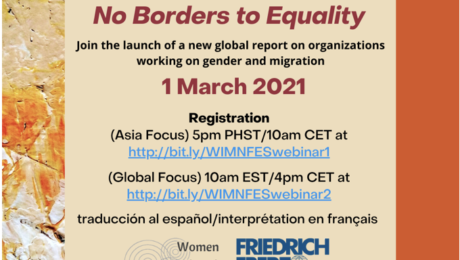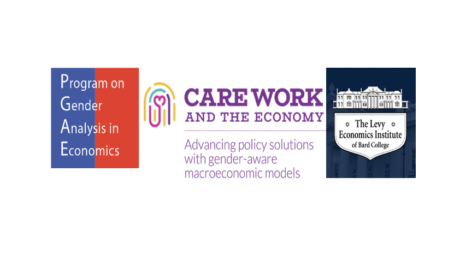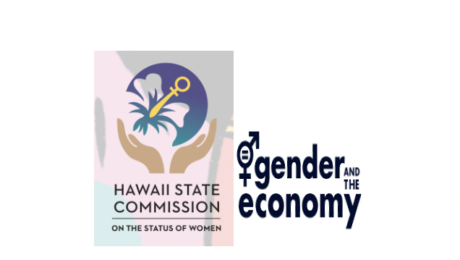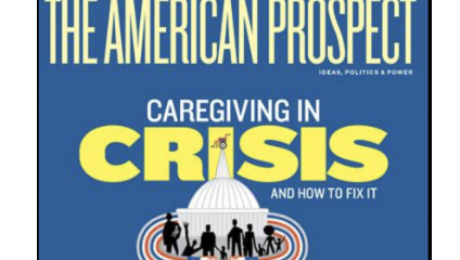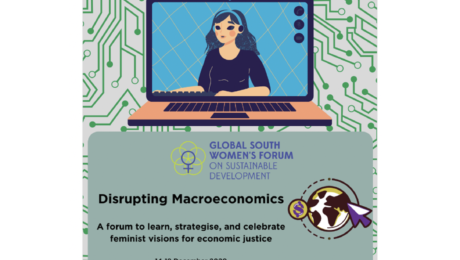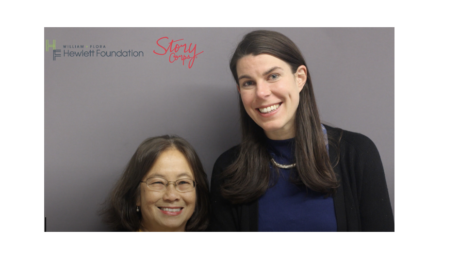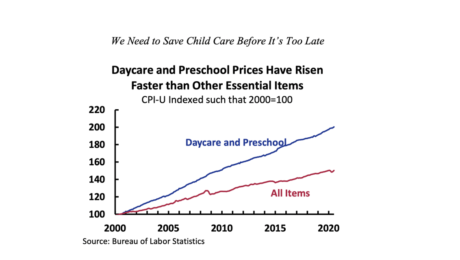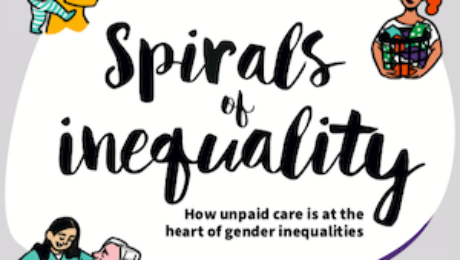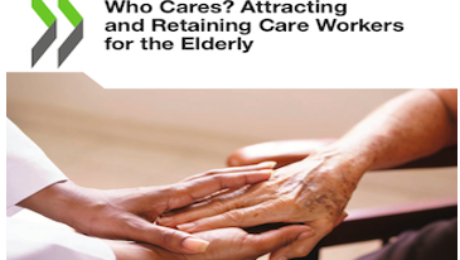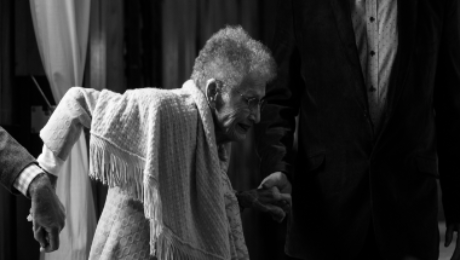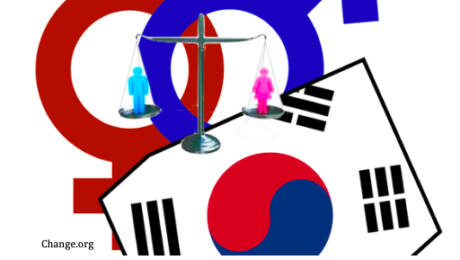Latest Blogs:
The Next Steps for Research on Care and the Economy
The third day of the Concluding Annual Meeting was marked by reflection of the project and sharing research plans for the future. Dr. Ito Peng (University of Toronto) introduced the
- Published in Conferences, Expert Dialogues & Forums, Maria Floro, Policy, Research
Insights on Research to Policy
As the Care Work and the Economy project is closing out this chapter, it is important to look at any lessons learned and turn toward the future of the field.
- Published in Conferences, Expert Dialogues & Forums, Policy
From the Funders of the Care Research and Advocacy
The essential work of the Care Economy Project greatly benefited from private philanthropy. On the closing day of the Concluding Annual Meeting, representatives from the donor organizations, Maria Durano (Senior
- Published in Conferences, Expert Dialogues & Forums
Research Gaps about the Care Economy
To wrap up the second day of the Concluding Annual Meeting, Dr. Nancy Flobre (University of Massachusetts Amherst) chaired a discussion on future avenues for research in the field of
- Published in Conferences, Expert Dialogues & Forums, Policy, Research
Labor Market Regulation Policy Simulations
Care responsibilities often fall disproportionately on women and can be a roadblock to full time employment. Labor market regulations could be a way to make the share of unpaid care
- Published in Conferences, Expert Dialogues & Forums, Policy
Evolving Demographic Change and Care Support in South Korea and the US
Care support ratios are a simple method to evaluate how demographic change may impact care economies while including the unpaid care work part of the economy, often overlooked. During the
- Published in Conferences, Expert Dialogues & Forums, Policy, Unpaid Care Work
Unmet Demand for Care: Family Caregiver’s Perspectives
Korea faces a care conundrum where the proportion of family care provision for children and the elderly has been consistently large even though the supply of paid care workers has
- Published in Child Care, Conferences, Expert Dialogues & Forums, Policy
The Toll and Rewards of Family Caregiving: Eldercare in South Korea
It is essential to maintain the quality of life of informal family caregivers because it affects the quality of the care provided and impacts their decisions on formal labor market
- Published in Conferences, Expert Dialogues & Forums, Policy
Child and Elderly Care in South Korea: Policy Analysis Using CGE Model
In Korea, fertility is constantly decreasing, and it is currently very low, the size of the elderly population is going up, and at the same time, the size of the
- Published in Conferences, Economic Modeling, Expert Dialogues & Forums, Policy, Rethinking Macroeconomics
The Ongoing Impacts of COVID-19 on Family Work-Life Balance in South Korea
The COVID-19 pandemic has impacted many aspects of everyday life and has brought attention to the care economy and unpaid care work. In South Korea, there were two periods of
- Published in Conferences, Expert Dialogues & Forums, Policy
The Journey of the Care Work and the Economy Project
As the CWE-GAM project is coming to a close, the final activities in the summer of 2021 showcased the groundbreaking research that was conducted over the past year and prompted
- Published in Conferences, Expert Dialogues & Forums, Maria Floro
Caring For the Future: How Public Spending Makes a Difference
During the first week of June, the Center for Transnational Migration and Social Inclusion at Seoul University and the Care Work and the Economic Project at American University will host
- Published in Uncategorized
The Cost of Caregiving to Caregivers of South Korea
What are the costs of caregiving? Conventionally, caregiving is considered a household activity that relates to parents raising their infant and young children and adult children taking care of their
- Published in Care Infrastructure, Child Care, Paid Care Services
Current Situation of Care Work in South Korea: 2018 Family Survey
The Care Work and the Economy project’s 2018 fieldwork in South Korea helped us learn a great deal about how childcare and eldercare is provisioned, both in the paid and
- Published in Child Care, Elder Care, Paid Care Services, Policy, South Korea, Unpaid Care Work
Fellows Reflect on Intensive Course in Gender-Aware Macro Modeling
Last month, the Care Work and the Economy project partnered with the Levy Economics Institute at Bard College to host a three-week Intensive Course in Gender-Sensitive Macroeconomic Modelling taught in
Investing in Quality Care has Positive Macroeconomic Effects
Recent research by Lenore Palladino and Chirag Lala of the Political Economy Research Institute (PERI), University of Massachusetts Amherst, examines the effects of critical public investment in childcare, home health
- Published in Care Infrastructure, Child Care, Elder Care, elderly care, Gender-Equal Economy, Healthcare, Macroeconomics, Policy
Climate Change and COVID-19: Why Gender Matters
This article was originally published in the Georgetown Journal of International Affairs on July 9, 2021. The COVID-19 pandemic highlights the important intersections of climate change, food security, migration, and
- Published in COVID 19, Economic Recovery, Feminist Economics, Gender Inequalities, Gender-Equal Economy, Maria Floro, Policy
“Girly Issues” Are Now the Country’s Issues
Dr. Nancy Folbre, an Advisor and Researcher of the CWE-GAM project and a groundbreaking feminist economist was among the first to sound the alarm about the care crisis. Dr. Folbre’s
- Published in Child Care, COVID 19, Economic Recovery, Feminist Economics
CWE-GAM Scholars Leading Two Panels During 2021 IAFFE Annual Conference
This week, the International Association for Feminist Economics (IAFFE) will hold its Annual Conference: “Sustaining Life: Challenges of Multidimensional Crises” starting on Tuesday, June 22nd, and concluding Friday, June 25th.
Making Care Count
The COVID-19 pandemic has informed our understanding of the care economy, exposing disproportionate inequities that must be addressed to alleviate the international erasure of care workers. These issues are addressed
- Published in Child Care, COVID 19, Economic Recovery, Gender-Equal Economy, Policy, Rethinking Macroeconomics, U.S.
Systemic Resilience and Carework: An Asia-Pacific Perspective
Below is an excerpt from a recent piece “Systemic Resilience and Carework: An Asia-Pacific Perspective” by Ito Peng, contributing researcher for the Understanding and Measuring Care group. This article was
- Published in Asia-Pacific, Child Care, COVID 19, Elder Care, Migrant Care Workers, Understanding and Measuring Care
Biden’s American Jobs Plan Could Be Monumental for the Care Economy in the U.S.
Last month, the Biden administration revealed the details of the $2 trillion American Jobs Plan. The plan recognizes that investing in the care economy, as with investments in traditional infrastructure,
- Published in Child Care, Economic Recovery, Policy, U.S.
What is the Care Economy and Why Should We Care?
In our project, we aim to promote and advocate for gender and socioeconomic equalities. We do this by working to reduce gender gaps in economic outcomes and by showing and properly
- Published in Canada, Child Care, Economic Modeling, Elder Care, Expert Dialogues & Forums, Feminist Economics, OECD
Women and the Pandemic in the U.S.
Institute for Women’s Policy Research released a report in February 2021”IWPR Women’s Priorities and Economic Impact Survey” outlining a recent poll of 1452 women in the U.S. The findings are backdropped
- Published in Child Care, Gender Inequalities, Policy, Policy Briefs & Reports, U.S.
Engendering the Macroeconomy: Current Efforts and Future Directions
On International Women’s Day earlier this month, the Whitaker Institute hosted a webinar titled “Engendering the Macroeconomy: Current Efforts and Future Directions” featuring Dr. Maria S. Floro, Principal Investigator of
- Published in Economic Recovery, Expert Dialogues & Forums, Gender-Equal Economy, Macroeconomics
Macroeconomic Policies, Care and Gender in the Post-COVID Era: Part II
Faculti, an organization that presents digital media from leading experts and academics outlining their work, recently released a digital presentation by the Care Work and the Economy Principal Investigator Dr.
Macroeconomic Policies, Care and Gender in the Post-COVID Era: Part I
Faculti, an organization that presents digital media from leading experts and academics outlining their work, recently released a digital presentation by the Care Work and the Economy Principal Investigator Dr.
Save the Date: Women & Migration Global Mapping Report
On March 1st the Women in Migration Network and Friedrich-Ebert- Stiftung is launching a new report mapping organizations working on gender and migration around the world “No Borders to Equality.”
- Published in Events, Gender Inequalities, Policy Briefs & Reports
A Narrative on Care
In 2018, the Care Work and the Economy (CWE-GAM) Project’s Understanding and Measuring Care (UMC) Working Group set out to gain a deeper understanding of the nature of care work
A New National Model for Preschool and Childcare in the U.S.
Frustrated with decades of inaction at the national and state level, residents of Multnomah County, Oregon put a measure on the ballot this past November to create a free, year-round,
- Published in Child Care, U.S., Universal Preschool
Care Work and the Economy: Fieldwork in South Korea
The 2018 fieldwork for the CWE-GAM project aimed to understand and measure care work in the South Korean context in order to inform gender-aware care macroeconomic models. The fieldwork consisted
Making the Biden-Harris Economic Recovery Plan Gender Responsive
A recent Gender & COVID-19 brief (also a sign on letter) “Making the Biden-Harris Transition Plan for COVID-19 gender-responsive” outlines how the Biden-Harris Transition Plan in the US can be
Hawai’i and Canada Provide Lessons for Feminist Economic Recovery from COVID-19
The need for an inclusive, gender-equitable recovery from the COVID-19 pandemic is slowly gaining recognition as it lays bare and exacerbates inequities in economic, social, health, and environmental policies and
- Published in COVID 19, Policy, Policy Briefs & Reports
Caregiving in Crisis and How to Fix It: Special Issue from The American Prospect
Last month, the Prospect released a special issue featuring a series of articles surrounding family care,“Caregiving in Crisis and How to Fix It.” To accompany this issue, a special event
- Published in Child Care, elderly care, Long Term Care Sector, Special Issues
Global South Women’s Forum 2020: Disrupting Macroeconomics
A Forum to Learn, Strategize, and Celebrate Visions for Economic Justice December 14 – 18, 2020 Submit Proposal The International Women’s Rights Action Watch (IWRAW) Asia Pacific is hosting this
- Published in Forums, Macroeconomics
Global Nonprofit Leaders on Why Women’s Time and Work Must be Part of Future Policy Choices
Last year, before the outbreak of COVID-19, the Hewlett Foundation teamed up with StoryCorps to record conversations with six nonprofit leaders working from Nairobi to Mexico City to make women’s lives, including
- Published in Leaders in Non-profit, Special Issues
COVID, the Old and Canada-What’s Wrong With Us? A Massey Dialogues Discussion
A recent virtual presentation from Massey College, “The Massey Dialogues: COVID, the old and Canada – What’s wrong with us?” brought together a panel to discuss how the detrimental impacts of
- Published in COVID 19, elderly care, Expert Dialogues & Forums
U.S. Needs to Save Child Care Before It’s Too Late
The childcare system in the US was already in a critical state of inadequacy, and the COVID-19 pandemic has only made this worse. A recent report released by the U.S.
- Published in Child Care, Policy, U.S.
Spirals of Inequality: A Women’s Budget Group Special Report
The Women’s Budget Group Commission on a Gender-Equal Economy, launched in February 2019, is an expert-led project aimed at developing economic policies that promote gender equality across the United Kingdom.
- Published in Child Care, Feminist Economics, Gender Inequalities, Gender-Equal Economy
LTC Sector Faces a Number of Challenges, Today and Going Forward: An OECD Report
OECD Health Policy Studies has released a 2020 report “Who Cares? Attracting and Retaining Care Workers for the Elderly.” This report addresses a number of important issues while acknowledging the
- Published in elderly care, Long Term Care Sector, Policy
Webinar (09/30/2020): Creating a Caring Economy
On Wednesday, September 30th at 10:00 -11:30 am BST, the Women’s Budget Group (WBG) will be a hosting a webinar titled “Creating a Care Economy” which will discuss the work
- Published in Events, Gender-Equal Economy
Biden’s Care Plan Has the Potential to Change Care Work in the U.S. for the Better
Joe Biden has officially accepted the Democratic Presidential nomination, and he and his team plan to make substantial investments in the infrastructure of care in the U.S. if he wins in
- Published in Child Care, elderly care, Policy, U.S.
Reflections on Parental Caregiving and Household Power Dynamics
A growing concern in many countries is an aging population and an increase in the number of elderly in need of long-term care. However, the impact of elderly care on
- Published in elderly care, Rethinking Macroeconomics
Reflections on The Effects of Public Social Infrastructure and Gender Equality on Output and Employment in South Korea
In terms of “Economic Participation and Opportunity” South Korea is one of the lowest-ranked countries in the world (124th out of 149 countries) as of 2018. Global Gender Gap Index
- Published in Rethinking Macroeconomics, South Korea
Reflections on Access to Infrastructure, Women’s Time Allocation, and Economic Growth
Despite notable progress in recent decades (including in primary school enrolment and access to the political system), gender gaps remain pervasive in rich and poor countries alike. In many developing
- Published in Gender Inequalities, Rethinking Macroeconomics
How I Learned to Love Macro
I have despised macroeconomics–even relatively innovative, post-Keynesian, gender-infused versions—for many years, for two big reasons. First, macro remains largely focused on an output variable, Gross Domestic Product, that systematically mismeasures
- Published in Rethinking Macroeconomics

